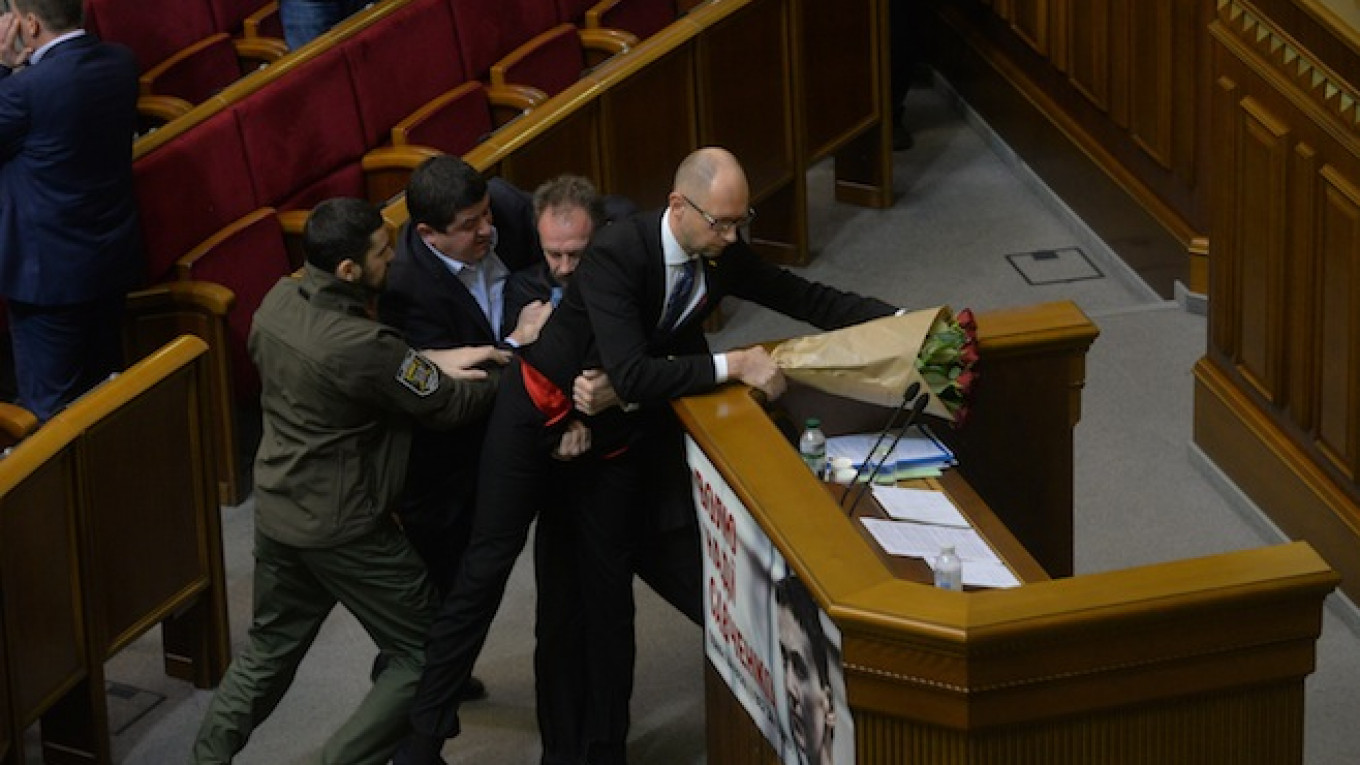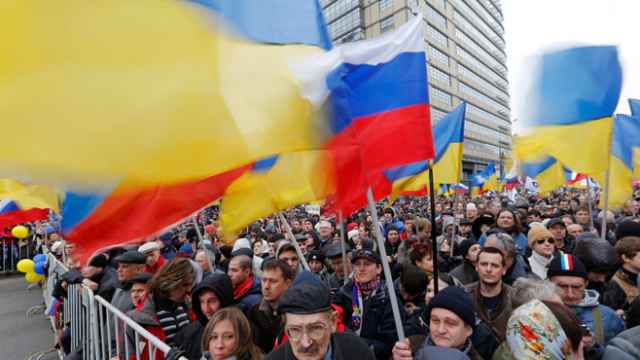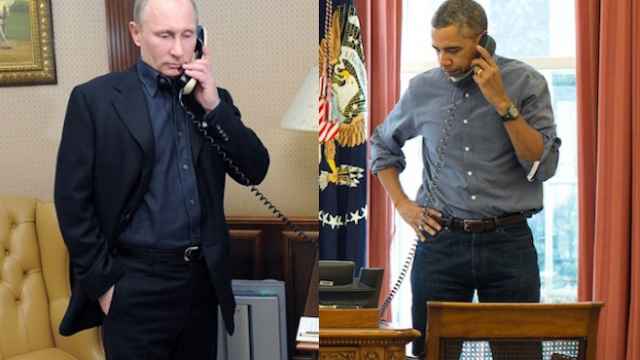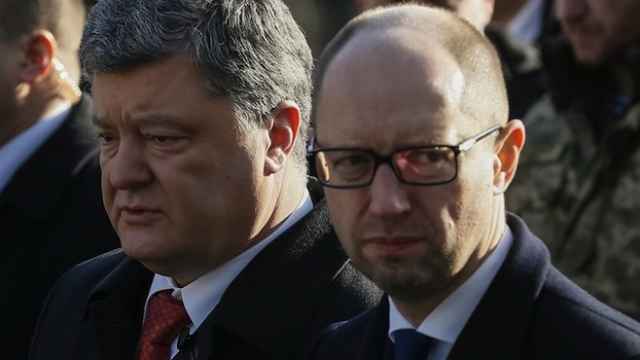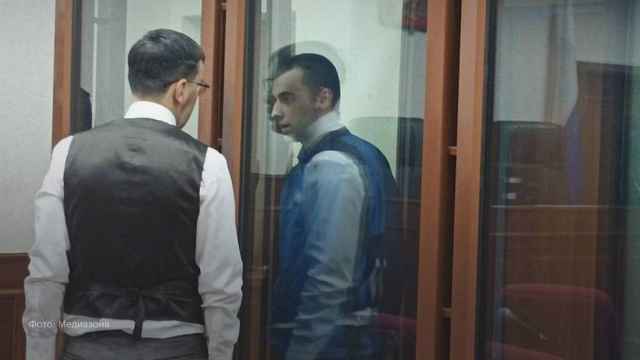Ukrainian Prime Minister Arseniy Yatsenyuk and his government have survived a no confidence vote in parliament despite being asked by the country's president hours earlier to resign.
A no confidence motion gathered 194 votes on Tuesday, falling short of the 226 needed to pass.
Yatsenyuk has been criticized for the slow pace of reforms, and his government's rating have collapsed amid an economic crisis.
The failure of the no-confidence motion means the government will likely survive until the next session of parliament starts in September. Ukrainian law allows only one such vote per session, according to news reports.
But the situation is likely to remain unstable. The vote appeared to highlight division between Yatsenyuk and President Petro Poroshenko, both of whom have been accused of pandering to corrupt officials and oligarch businessmen since rising to power following popular protests in 2014.
The motion was initiated by Yuri Lutsenko, parliamentary head of the pro-presidential Petro Poroshenko Bloc faction. It followed demands by Poroshenko for a “total reboot” and “reformatting” of the government and Yatsenyuk's resignation, the Meduza news website reported Tuesday citing a statement by the president.
Despite surviving the vote, the government was weakened on Wednesday when the Fatherland party led by former Prime Minister Yulia Tymoshenko left the ruling coalition.
Tymoshenko branded the government “untenable” and urged ministers to resign.
"The party and the faction find it unacceptable to be in this pack, which has no chance to carry out reforms and reboot all of our lives" she was quoted by the TASS news agency as saying.
Fatherland's exit leaves the remaining three parties in the coalition with a majority, though it is unclear whether any other party will follow suit.
A Message from The Moscow Times:
Dear readers,
We are facing unprecedented challenges. Russia's Prosecutor General's Office has designated The Moscow Times as an "undesirable" organization, criminalizing our work and putting our staff at risk of prosecution. This follows our earlier unjust labeling as a "foreign agent."
These actions are direct attempts to silence independent journalism in Russia. The authorities claim our work "discredits the decisions of the Russian leadership." We see things differently: we strive to provide accurate, unbiased reporting on Russia.
We, the journalists of The Moscow Times, refuse to be silenced. But to continue our work, we need your help.
Your support, no matter how small, makes a world of difference. If you can, please support us monthly starting from just $2. It's quick to set up, and every contribution makes a significant impact.
By supporting The Moscow Times, you're defending open, independent journalism in the face of repression. Thank you for standing with us.
Remind me later.


